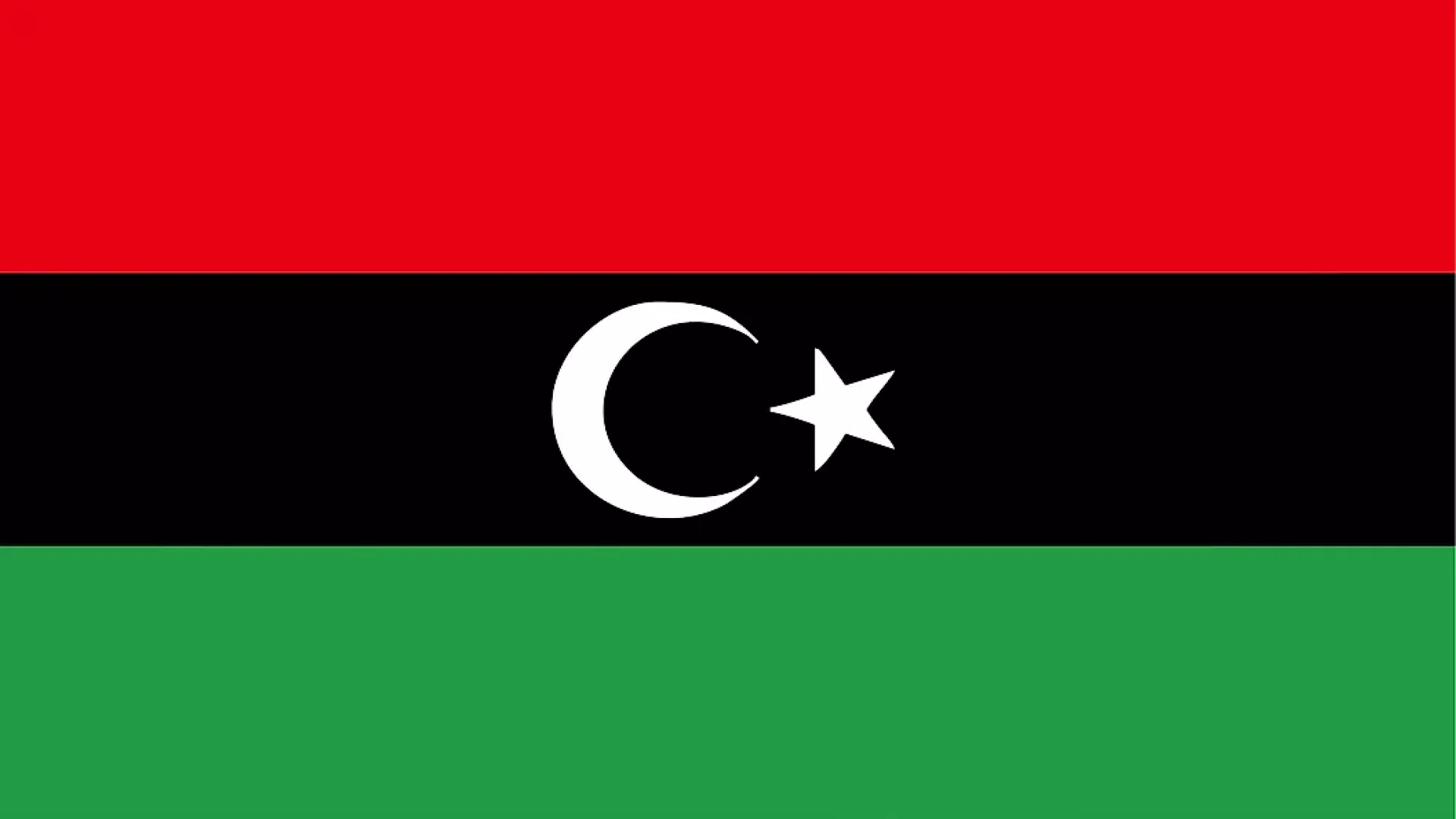Upcoming Holidays and Celebrations in Libya

| Day | Date | Holiday | Type |
|---|---|---|---|
| Friday | Feb 17,2023 | Libyan Revolution Day | Public Holiday |
| Thursday | Mar 23,2023 | Ramadan Start | Observance |
| Friday | Apr 21,2023 | Eid al-Fitr | Public Holiday |
| Saturday | Apr 22,2023 | Eid al-Fitr Holiday | Public Holiday |
| Sunday | Apr 23,2023 | Eid al-Fitr Holiday | Public Holiday |
| Monday | May 01,2023 | May Day | Public Holiday |
| Tuesday | Jun 27,2023 | Day of Arafah | Public Holiday |
| Wednesday | Jun 28,2023 | Eid al-Adha | Public Holiday |
| Thursday | Jun 29,2023 | Eid al-Adha Holiday | Public Holiday |
| Friday | Jun 30,2023 | Eid al-Adha Holiday | Public Holiday |
| Saturday | Jul 01,2023 | Eid al-Adha Holiday | Public Holiday |
| Wednesday | Jul 19,2023 | Muharram | Public Holiday |
| Saturday | Sep 16,2023 | Martyrs' Day | Public Holiday |
| Wednesday | Sep 27,2023 | The Prophet's Birthday (Tentative Date) | Public Holiday |
| Monday | Oct 23,2023 | Liberation Day | Public Holiday |
| Sunday | Dec 24,2023 | Independence Day | Public Holiday |
Libyan Revolution Day
Libyan Revolution Day, celebrated on February 17th, marks the beginning of the 2011 Libyan Revolution that led to the overthrow of the Gaddafi regime. It holds immense cultural importance as it signifies the liberation of the Libyan people from decades of authoritarian rule. Libyans commemorate this day with parades, fireworks, and various cultural events, reaffirming their commitment to freedom and democracy.
Ramadan Start
Ramadan Start is the first day of the holy month of Ramadan, the ninth month of the Islamic lunar calendar. It's a significant holiday for Muslims in Libya and worldwide. Ramadan is observed by fasting from dawn to sunset, offering prayers, and engaging in acts of charity. It is a time of self-reflection, spiritual growth, and community bonding. The cultural importance lies in fostering discipline, empathy, and devotion among individuals, bringing families and communities closer together.
Eid al-Fitr
Eid al-Fitr, also known as "Festival of Breaking the Fast," is celebrated at the end of Ramadan. It's a joyous occasion that signifies the successful completion of fasting and self-purification. Libyan families gather to offer prayers, exchange gifts, and share festive meals. This holiday fosters a sense of unity and charity, as Muslims give to those in need, reinforcing the importance of compassion and generosity in Libyan culture.
May Day
May Day, celebrated on May 1st, is a global holiday honoring workers and their contributions. In Libya, it acknowledges the labor force's role in the nation's development. Workers participate in parades, demonstrations, and cultural events to highlight their importance. It's an occasion to reflect on workers' rights and appreciate their dedication to the nation's progress, emphasizing the value of labor and its cultural significance.
Day of Arafah
Day of Arafah falls on the 9th day of Dhu al-Hijjah, the Islamic lunar month. It's an essential component of the Hajj pilgrimage and holds cultural importance for Muslims in Libya. Pilgrims stand at the plain of Arafat, seeking forgiveness and supplicating to Allah. While not a public holiday, it's a day of reflection, prayer, and fasting for Muslims around the world. It represents unity and spirituality within the Libyan Muslim community.
Eid al-Adha
Eid al-Adha, the "Festival of Sacrifice," is observed by Muslims worldwide, including Libya. It commemorates Ibrahim's willingness to sacrifice his son as an act of obedience to God. Families in Libya celebrate by sacrificing an animal and distributing the meat among relatives and the less fortunate. This holiday promotes generosity, sharing, and compassion within Libyan society, reinforcing cultural values of empathy and solidarity.
Muharram
Muharram marks the beginning of the Islamic lunar calendar and is considered a sacred month for Muslims. In Libya, it's a time for reflection, fasting, and religious observance. The cultural significance lies in reaffirming faith and spiritual commitment. It's a month for self-purification and deepening one's connection with God, fostering a sense of unity and spirituality among Libyan Muslims.
Martyrs' Day
Martyrs' Day, observed on February 17th, honors the Libyan revolutionaries who sacrificed their lives for the country's freedom and independence. It's a day of remembrance and gratitude for their sacrifices. Libyans pay tribute to these heroes through ceremonies, parades, and patriotic activities. This holiday underscores the importance of valuing liberty and sovereignty, fostering national pride and unity.
The Prophet's Birthday (Tentative Date)
The Prophet's Birthday, known as Mawlid al-Nabi, is celebrated by Muslims in Libya and worldwide. It marks the birth of Prophet Muhammad. While the date may vary, Libyans observe this day with prayers, feasts, and processions. It's a time to learn about the Prophet's life and teachings, promoting unity among Muslims and reinforcing cultural values of compassion, kindness, and following the Prophet's example.
Liberation Day
Liberation Day, celebrated on October 23rd, commemorates the liberation of Libya from Italian colonial rule in 1951. It's a day of pride and patriotism, with various events, parades, and cultural activities. This holiday holds immense cultural importance by reaffirming Libya's history, sovereignty, and the sacrifices made for independence, instilling a sense of national pride and unity among Libyans.
Independence Day
Independence Day, observed on December 24th, marks the day Libya gained full independence from colonial powers in 1951. It's a significant national holiday celebrated with parades, fireworks, and cultural performances. Independence Day reinforces the cultural importance of sovereignty and national identity, fostering a sense of unity and patriotism among the Libyan population, and highlighting the nation's history and struggle for independence.




















